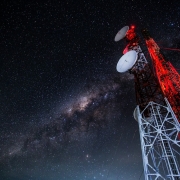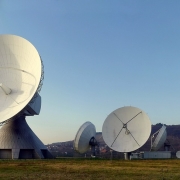How does the ubiquitous rf noise affect our lives
Roberson lives in Wheaton College, Illinois, and his FM radio beeps every time he drives near a hilltop electronic transformer. When he passes a high-speed train crossing in Chicago, his cell phone in the middle of a conversation goes dead. Matheson, in a similar situation, has trained himself to use his electric toothbrush every time it comes on during a TV commercial because when he turns it on, the pictures and sounds on the TV in his bedroom are interrupted.
This is the interference of rf noise pollution in our life, it is everywhere. It’s a pollutant you can’t see, hear, smell or taste. You can’t call it out to study it in your spare time, because it’s elusive, it’s everywhere. Virtually any electronic device can emit radio-frequency noise, from generators to car engines to the computer on your desk. Have you ever heard the high-voltage neon lights and fluorescent ballasts in our houses beeping at a constant high frequency? Industrial machinery, elevators, welders, relays, power switches, and even switches that regulate the brightness of lamps are all part of this rf noise army. (of course, natural sources of this noise are everywhere, including lightning and solar flares, but we won’t discuss them in this article.)
The problems caused by rf noise pollution fall into four categories: first, it increases the cost of deploying wireless systems because it reduces the battery life of devices;Secondly, it brings a variety of interference in a wide range of frequencies;At the same time, there is no policy intervention to address this noise pollution, because the more noise you have, the more spectrum you have to switch over to get the message out. Therefore, the wireless network, in reality, cannot achieve the pre-designed data transmission efficiency. Finally, tracing the source of radiofrequency pollution is very expensive, and when you’re trying to figure it out, it’s hard to trace the source once the device is disabled.
![]()
It is conceivable that this kind of rf noise pollution will be more serious when the Internet of things comes into full play. The spread of the Internet of things will see countless ordinary objects around us fitted with sophisticated radio-frequency control chips, such as door locks, light switches and all kinds of electrical appliances, as well as cars and even our bodies, all designed to make everything connected to the Internet. Each chip becomes a potential source of rf noise. There are several technologies available to solve this problem, but the sheer number of rf control chips used in a variety of products means manufacturers have little incentive to add noise-blocking capabilities to their products, which would undoubtedly increase manufacturing costs. We often say that silence is golden, yes, to obtain a quiet environment also costs money.
From:http://www.hj-antenna.com/ubiquitous-rf-noise-affect-lives/








Leave a Reply
Want to join the discussion?Feel free to contribute!